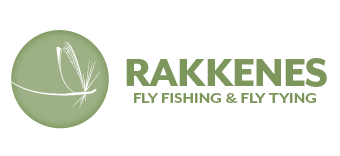THE TEN RIVERS TRIP RULES FOR FISHING
These are the five rules that we must obey to in our fly fishing, and they are our way of living the Ten Rivers Trip Dogma. The rules are dynamic. As our insight into on environmental challenges and animal welfare grows, the rules need to be sharpened accordingly. Therefore we revise the rules every year, every other year we will need to add to the Ten Rivers Trip Rules for fly fishing.
No 1 – LIMIT YOUR CATCH
The only ethically justifiable fly fishing practice is in waters with a sustainable population of fish, and with an ecosystem in balance. Wherever any of the species are endangered, fly fishing should be avoided. Since the sport or recreation is the primary motive for most fly fishing, special attention and care to environmental effects of our passion should be taken.
Limit your catch. Do not present your fly to every opportunity. It can be just as rewarding just enjoying the sight of a rising fish as it is catching it.
No 2 – ANIMAL WELFARE FIRST
Catch and release fly fishing is in a gray area when it comes to animal welfare. Practiced properly, C&R is both sustainable and ethically justifiable. Done wrong, it violates all common sense principles for animal welfare and sustainable preservation of wildlife.
Therefore, always use barbless hooks with a wire thick enough so that it doesn’t bend or break. Fight the fish firmly and determined. Land it as soon as the situation allows. Avoid taking the fish out of the water, unless you intend to kill it. Release the fish while it’s in the net (knotless) and always in the water. Posing a fish that’s going to be released is an unnecessary affliction and must be avoided. Photos of a fish in the net can be just as beautiful.
Don’t be tempted into the sport of fishing with as light equipment as possible. Maximize your AFTM, and never use lighter rod than AFTM #4 or a tippet thinner than 6X.
No 3 – MINIMIZE WADING
The population of aquatic insects such as mayflies, caddis flies and stone flies is in decline all over the world. In many rivers the usual and traditional species are now rare and uncommon.
Even if more scientific studies are needed to find the sources for this negative development, the ethically conscious fly fisher acknowledges his/her responsibility does what’s needed to reduce the wear on the riverbed.
Wading harms the riverbed and is contributing to the erosion of the habitat of the aquatic insects.
Purposeless wading is pointless and must be avoided
No 4 - CONSERVE AND PROTECT
Fly fishers take part in an ecosystem also when out of the water. At the river bank, in the forest, by the still water, the flora is crucial to the well being and reproduction for insects, animals and thus the fish.
Use, but do not abuse nature. Your activities leave a trail and a footprint. As a responsible fly fisher you have a responsibility not to leave traces of your activities behind.
No 5 - FIVE NEW WATERS
Trophy hunting usually means fishing in known rivers and still waters. To avoid trophy hunting in known waters, we must locate five new rivers and still waters each season. At the new waters we will work to protect life in the waters as much as killing fish. Therefore we must always locate and fish five new waters close to our hood, and never fish more than five known waters every year.

